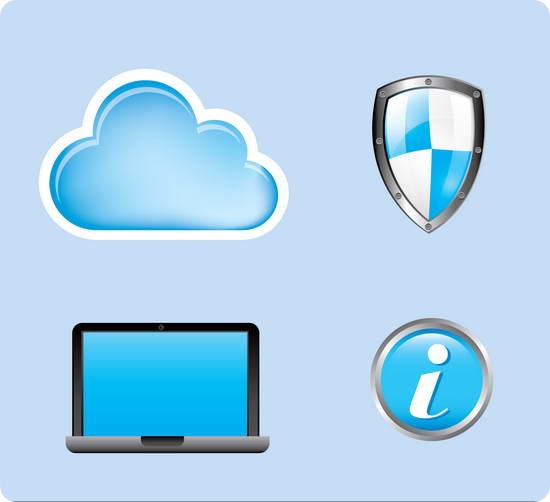I’m sure that an ANTIVIRUS is one of the most commonly installed software on any Computer System. After all, all of us know the devastating effects that malware can have on our data, and our system. Viruses, Trojans, and things like that are one of the most common reasons why people have to run to computer repair shops to get their machines rectified, every once in a while. Antivirus software technology has come a long way since the early days, when the only Antivirus people knew was the resource hogging “Norton”. Now, computers have become faster, and more efficient. Moreover, there are a lot of very good Antivirus products available to users, both free and paid.
But you know, there’s an entirely new class of Antivirus software that has emerged recently. And it’s really, really great. Intrigued? Ladies and Gentlemen, say hello to Cloud Antivirus.
Wait.. what? What the heck is a Cloud Antivirus?
Is it really so hard to believe? Everything we do online is slowly moving to the cloud. We store our photos (Flickr, Photobucket), create, edit and save our documents (SkyDrive Web Apps, Zoho Office Suite), Stream music and videos (Pandora, Netflix) and the list goes on. Basically, cloud computing seems to be the future of computing. So it’s only obvious that Software applications (in this case: Antivirus software) follow suit too. So here we have .. Cloud Antivirus!!
To understand how cloud antivirus works, first we have to understand how our conventional antivirus software works. This is what happens when you install AVG, Norton, Avira or anything on your PC.
- The Antivirus installs itself to your system, and starts its first complete system checkup.
- If you’re connected to the Internet, it checks its database servers to see if there’s an update (which means new Virus/Malware definitions)
- If an update is available, it’s downloaded.
- The antivirus keeps running in real time, and keeps itself updated. Whenever a suspicious activity threatens your system, it takes the necessary action (Quarantine/Delete the infected file, or ask for user intervention)
.. That’s just about it. Pretty straightforward, wouldn’t you agree? As it’s clear, the Antivirus system is running on your system, and all the updates are downloaded and stored on your local machine. And your machine’s resources are used whenever the antivirus has to scan the system for malware.
This is where Cloud Antivirus Systems differ. In contrast to a regular antivirus software, a Cloud AV does most of its processing on remote servers, instead of the local machine. It’s an innovation that has been made possible by rapid strides in cloud computing and Internet Connectivity.
Simplified Working of a Cloud Antivirus software
Although the detailed explanation of the working of Cloud AV systems is verbose enough to warrant another article, I believe the following pointers should be helpful in providing you a basic understanding about the working of the same. Basically, this is what happens:
- You download the executable Cloud Antivirus to your computer and install it (You’ll gasp in amazement when you see the size of the executable of modern cloud AVs!!)
- The Cloud AV runs for the first time to start a complete scan of your system.
- Now here’s the difference: Contrary to regular AV software, Cloud AV systems don’t download any updates to your system at all. This means that there are no updated virus definitions on your system at any time. If anything that is updated, it’s the Cloud AV software itself.
- The virus definition database is maintained on centralized servers, and it’s kept constantly updated there only. This effectively means, significantly less strain on the user’s machine.
- The Cloud AV keeps running on the system in real time. Whenever a user initiates a manual system scan, or an on demand file scan, the target file(s) are checked against the virus definitions database stored on the remote servers (the cloud)
- And if any suspicious file(s) are found, the AV acts as per specified by user’s settings (Auto delete, Quarantine, Block etc.)
Why you should use Cloud Antivirus systems?
- They are incredibly lightweight.
- Zero to minimal processing is done on the user’s machine, thereby keeping the system resources free for other tasks.
- The virus definitions database is constantly kept updated, because unlike regular AVs, you don’t have to download virus definitions periodically. So your antivirus is constantly updated, even when you’re offline.
.. However, there’s one small caveat. An always ON reliable Internet connection is very important to the efficiency of the Cloud AV Systems. It’s not absolutely required, but it’s certainly one of the prime requirements. And that’s obvious, because working in the cloud requires Internet connectivity.
Conclusion
Cloud Antivirus systems are a new breed of AV software. They are lightweight, efficient and easy to use. Granted, they require a pretty stable Internet connectivity, but for most of the users, that’s not a problem, especially when Internet connectivity has been improving in major geographical areas. In summary, Cloud Antivirus systems, just like Cloud computing, are here to stay, for a very, very long time.
What do you guys think of Cloud AVs? Do you use them on a regular basis? How efficient do you find them against their regular counterparts? Let me know in the comments below
Image Courtesy: tesla-it.com
